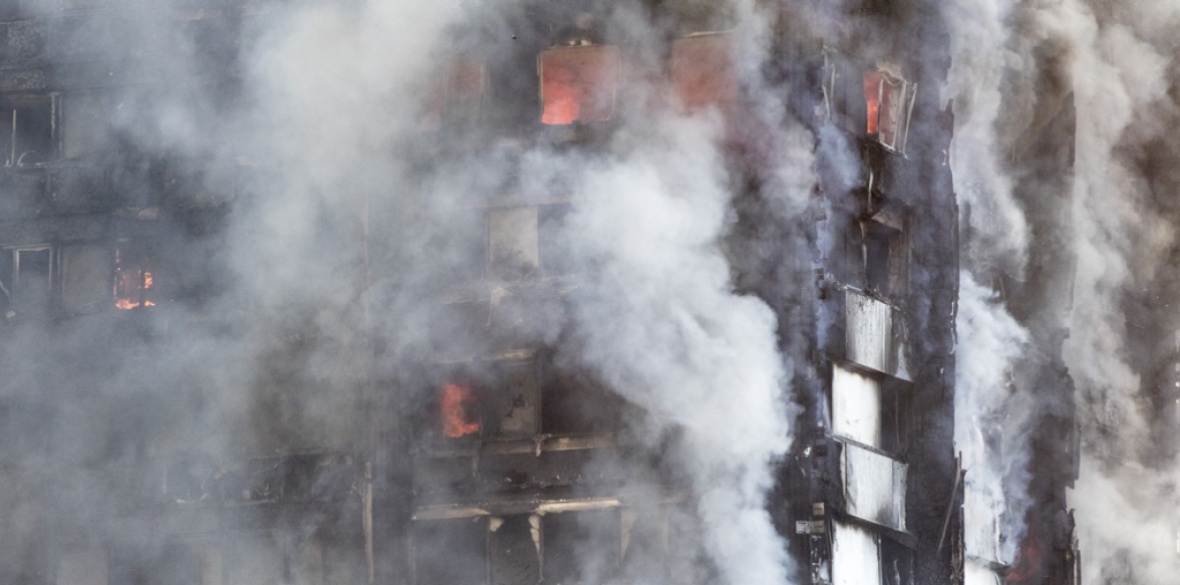This is the last article you can read this month
You can read more article this month
You can read more articles this month
Sorry your limit is up for this month
Reset on:
Please help support the Morning Star by subscribing here
“OBVIOUS dangers” were introduced into the design of Grenfell Tower without any proper regulatory oversight, experts declared today as the public inquiry into the deadly inferno started hearing evidence.
In reports published by the inquiry, several experts were highly critical of the block’s refurbishment, the regulatory system which was meant to ensure the building’s safety and the testing of material used in the cladding
Dr Barbara Lane said there was a “culture of non-compliance” over fire safety measures, adding that the building’s cladding resulted in a “disproportionately high probability of fire spread,” meaning the London Fire Brigade’s “stay put” advice had “effectively failed” within half an hour.
Her report stated that “the construction materials forming the rainscreen cladding system, either individually or when assessed as an assembly, did not comply with the recommended fire performance set out in the statutory guidance.”
Professor Luke Bisby said the “most likely” cause of the spread of the original fire from a flat to the cladding was through gaps in the kitchen window, adding that the “primary cause of rapid and extensive external fire spread” was the polyethlyne-filled cladding.
And Professor Jose L Torero blasted the “inadequacy” of standardised tests which could not accurately predict how a building and its wrapping would interact in a fire, which introduced “obvious dangers.”
He said there was “a need to shift from a culture that inappropriately trivialises compliance” or “the increasing complexity of building systems will drive society in unidentified paths towards irresponsible deregulation by incompetency.”
Chief counsel to the inquiry Richard Millett QC acknowledged that many wanted to know: “How did so many people sign this building off as safe? Was saving money put before saving lives?”
He said those questions would be addressed in phase two, which is unlikely to begin before May 2019.
He admitted that survivors and other eyewitnesses had not yet been told when, or even if, they would need to give live evidence, but he said they would be informed “as soon as possible.”
Mr Millett detailed the refurbishment of Grenfell Tower between 2012 and 2016. The contract was initially offered to Leadbitter before being awarded to Rydon Maintenance, which bid a lower price.
He said the refurbishment included the “overcladding of every storey of the existing building with a cladding system,” which included a Reynobond 55PE aluminium rainscreen containing polyethylene which can “provide a fuel source for a growing, spreading fire.”
He said manufacturer Arconic accepted that “this product was not of limited combustibility” under the regulations, adding that “this should have been obvious to any construction professional.”
Mr Millett added that the cladding included either Celetox’s RS5000 insulation or Kingspan’s K15 product. The insulation, he said, “can support rapid fire spread of adjacent material because it effectively insulates the cavity from heat loss.”
BBC Panorama reported last month that the way Celotex tested and allegedly missold the product could amount to corporate manslaughter.
He also outlined other “serious concerns” raised by Dr Lane’s report, including the performance of front doors of flats in the tower and their ability to resist fire, the failure of the firefighting lift, water supply for the fire brigade and the operation of smoke ventilation systems.
Mr Millett warned corporate core participants against a “merry-go-round of buck-passing” over responsibility for conditions in Grenfell Tower, adding that he hoped they would not “need to be reminded of the chairman’s powers of compulsion.”
Grenfell United campaign group said in a statement before the hearing: “This is the beginning of a long road to justice for ourselves, our families, our community and for the 72 people we lost on June 14 2017.
“The scale of the tragedy has devastated our lives and our community. What makes it even worse for us is the knowledge that these deaths were completely avoidable.
“Our biggest hope is that the truth leads to change. No community should ever suffer what we have and the government must act to make sure that everyone is safe in their homes.”











